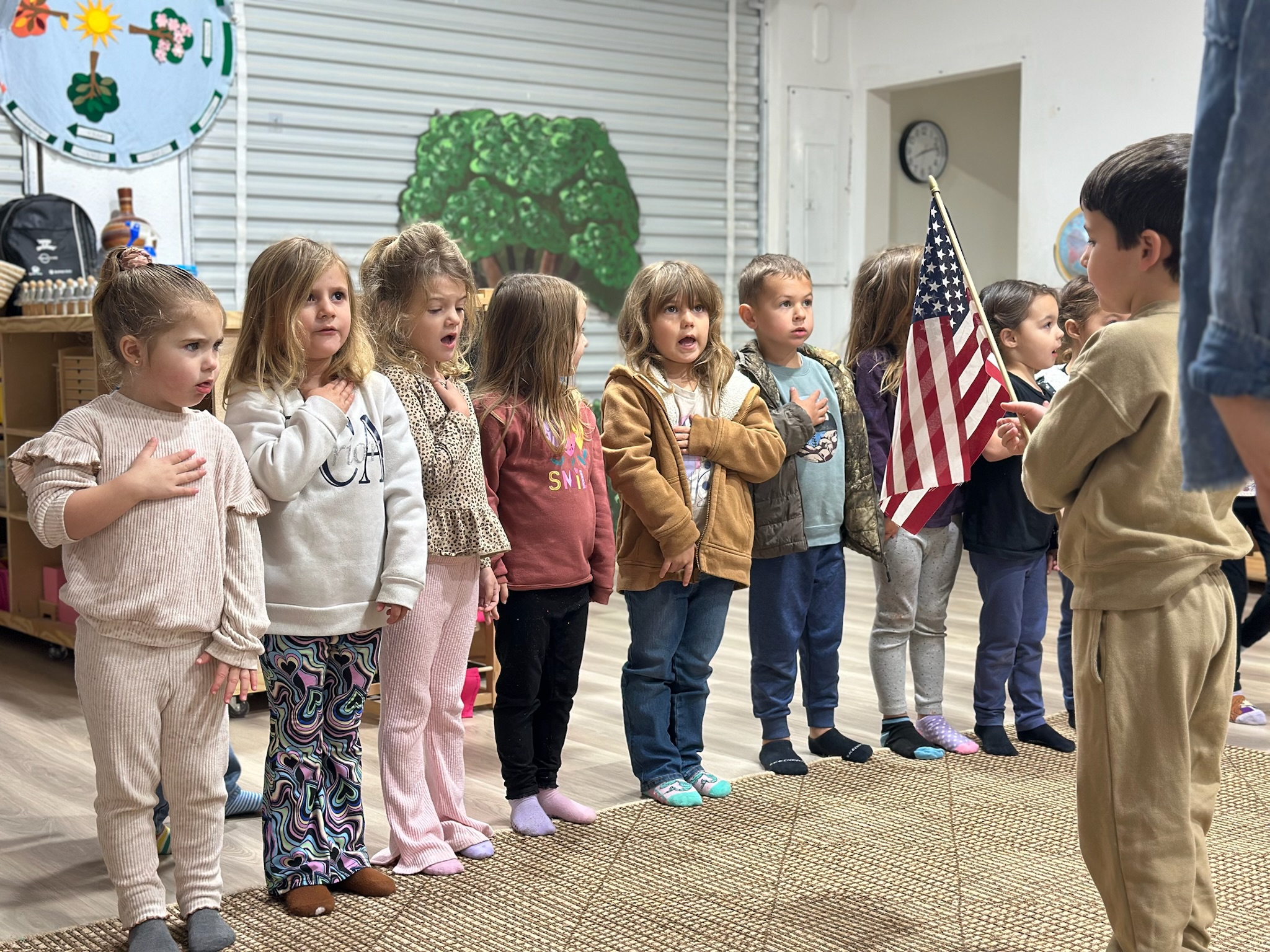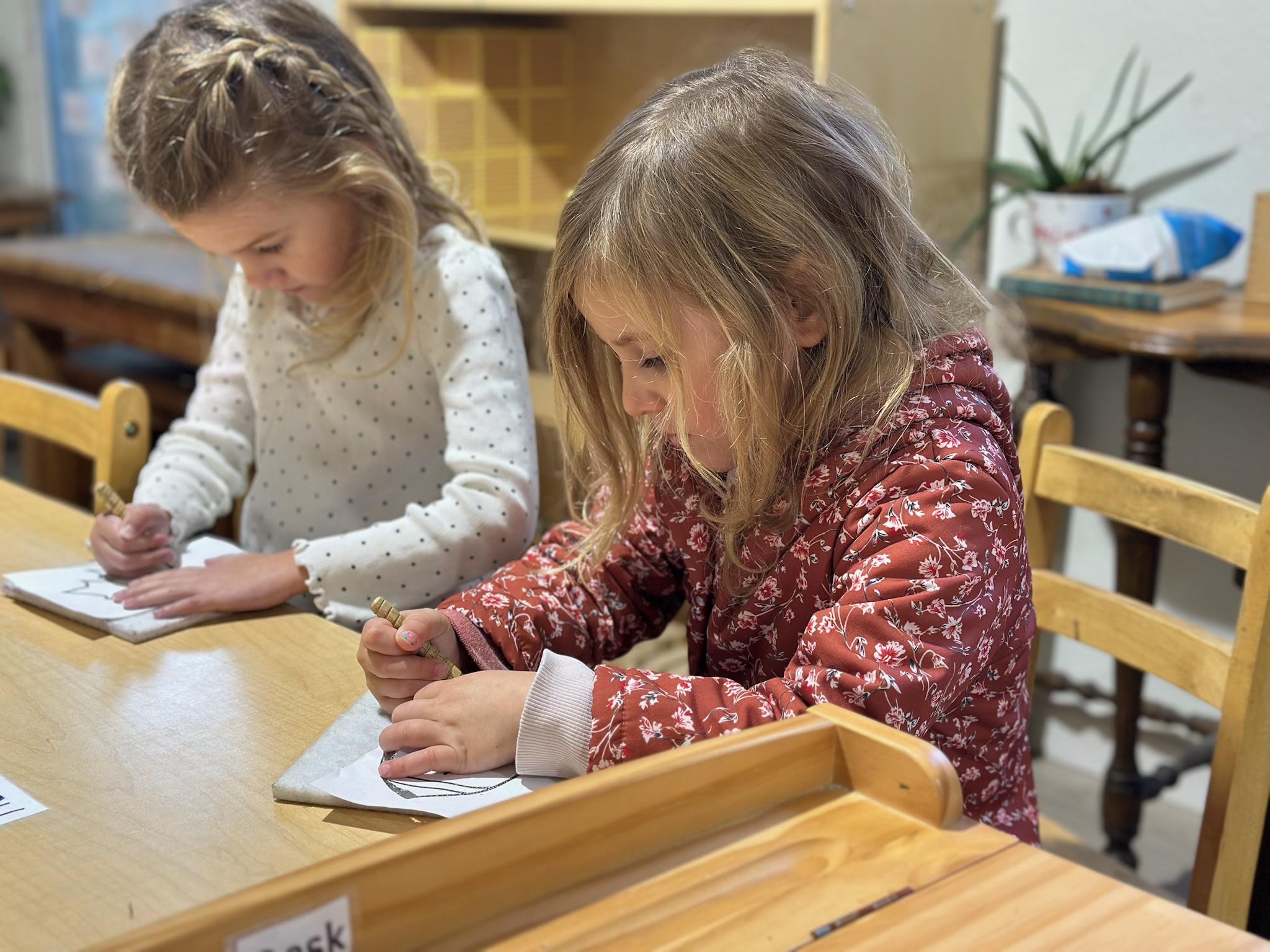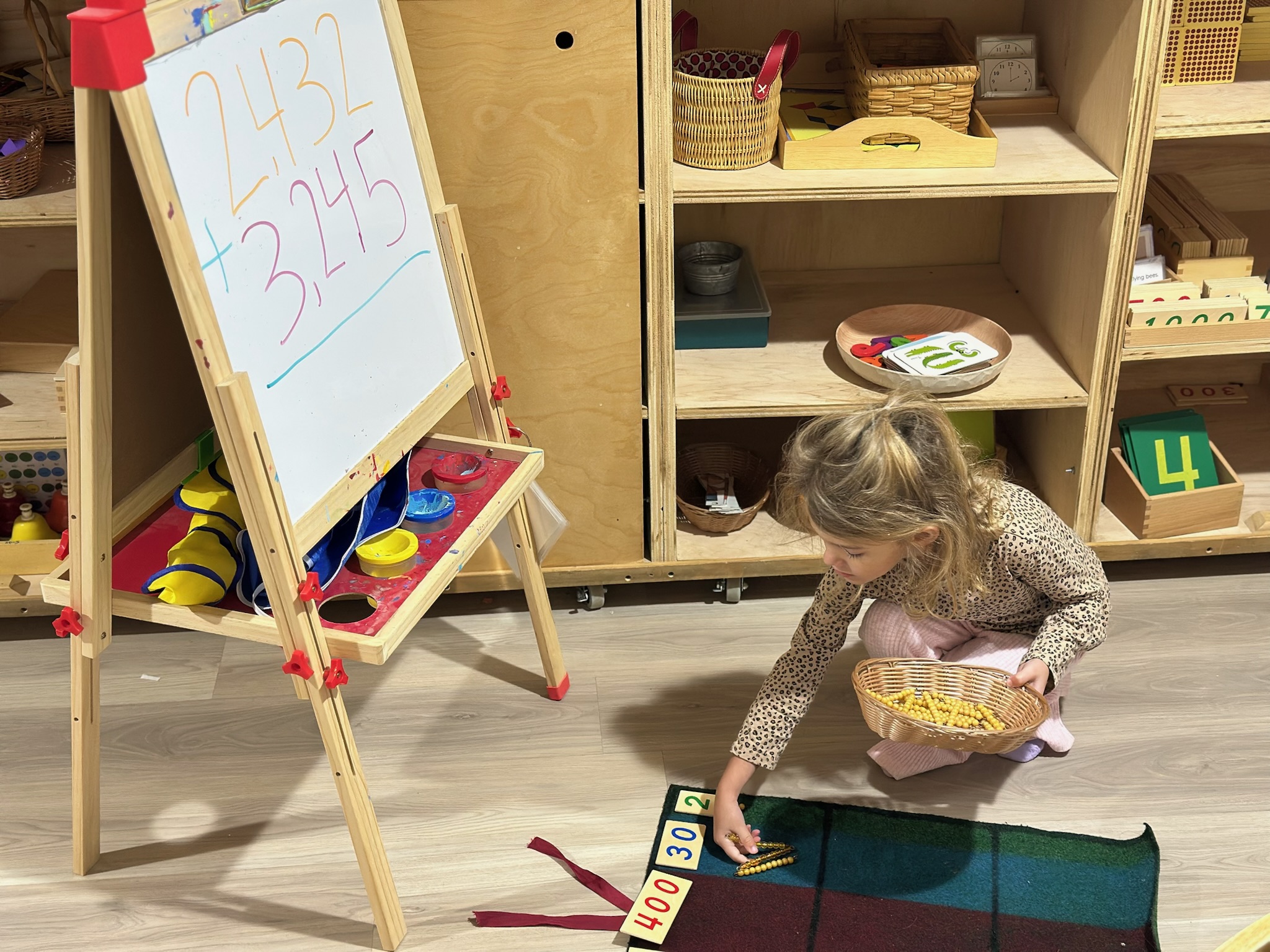
Montessori Children's House Program
The Montessori Children's House is a program designed to follow the child's natural desire to learn. It focuses on social strengths as well as laying a firm foundation on which learning can be fostered. It will assist in developing confidence, independence, problem-solving, creativity, and real-life skills.
Learning in the Children’s House
The Children’s House offers a dynamic learning environment where children are empowered to choose their work, follow their interest, and progress at their own pace. Within this space, children develop their independence, refine their concentration, and explode into learning.
Between the ages of 3-6, our sprouts at FAM move through sensitive periods for language and mathematics.
During this stage of development, the Montessori Curriculum introduces children to a range of advanced Montessori materials that expand on their knowledge of Practical Life, Sensorial, Mathematics, Language and Culture.
The design of the classroom, and the educational materials within it, reflect these interests and provide rich opportunities for learning that nurture children’s complete development while preparing them for school and life.


Sprouts Learning Goals
-
Formation of individual letters and numbers
-
Recognizes numerals and counts by rote
-
Reads simple sentences and constructs phonetic words
-
Can write and recognize their own name
-
Aware of the decimal system, addition, and subtraction
-
Participates in physical activities and follows the rules of games
-
Shows self-confidence and interacts well with others
-
Ability to concentrate and work independently
-
Responds to challenges and demonstrates problem-solving skills
Sprouts Curriculum
Practical Life
Practical life activities focus on care of self, care of others, and care of the environment. In addition to teaching daily life skills, practical life activities promote independence, social skills, grace and courtesy, concentration, and coordination.
Sensorial
Sensorial activities are designed to help children develop and refine the senses of sight, touch, taste, smell and sound. These skills assist with classifying, sorting and discriminating between objects to interpret their sensory impressions. These skills are necessary foundations for language and mathematics.
Mathematics
Montessori mathematics materials assist children in developing an understanding of abstract mathematical concepts through hands-on experiences. Through the mathematics materials, students learn to identify and quantify numerals, count and sequence numbers, add and subtract, identify patterns, and learn about number systems.
Language
Montessori language materials assist children in learning literacy skills and developing their vocabulary. Through conversation, singing, and hands-on materials, children learn letter recognition, phonics, vowels and consonants, and the early stages of writing and reading.
Culture
The Montessori Culture Curriculum covers the study of the arts, geography, science, environment, national culture, music, and history. Through cultural activities, children learn about their community and the world. They discover similarities, differences, and develop an understanding, appreciation and respect for diversity and all living things.
 |  |  |
|---|---|---|
 |  |  |
 |  |